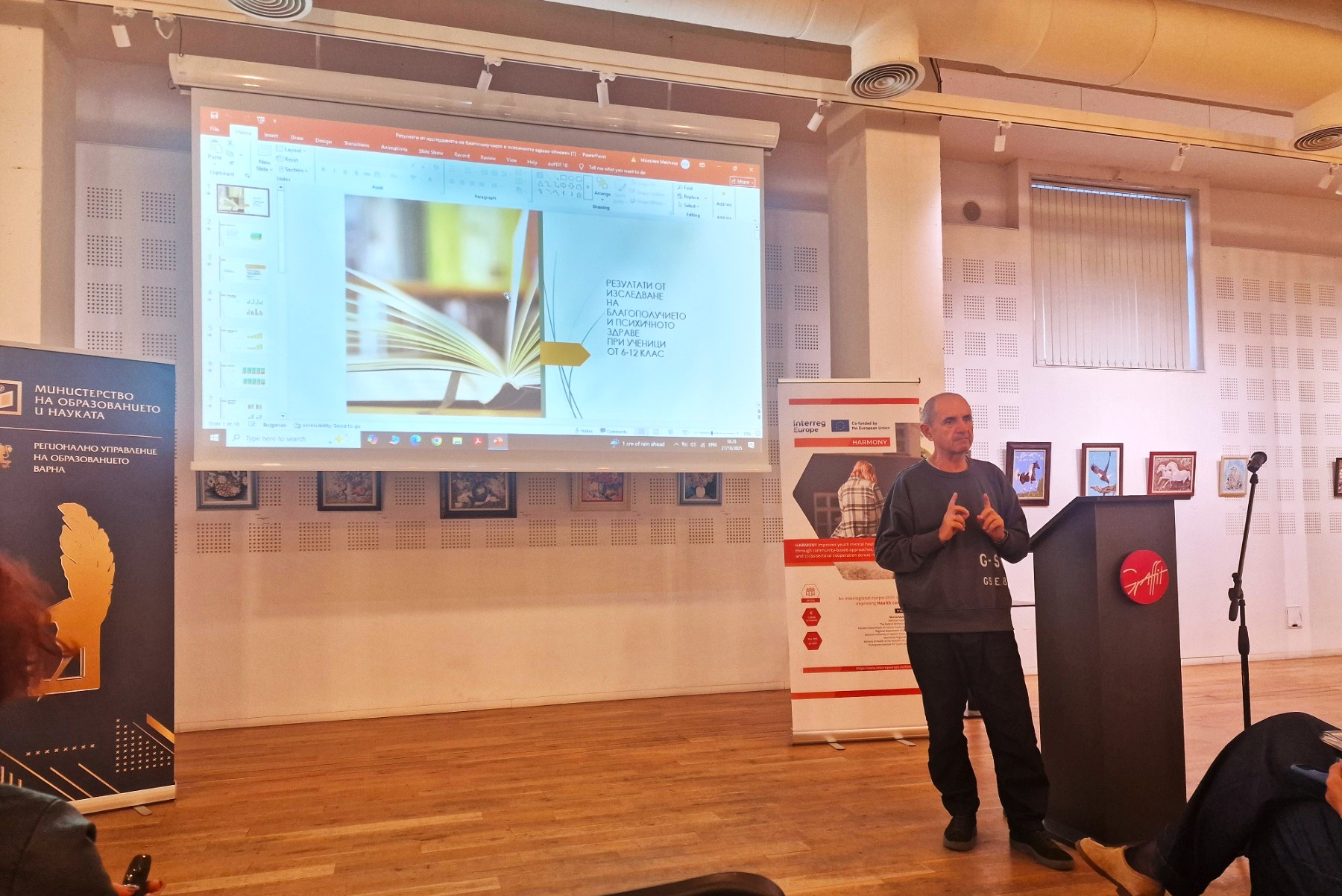Previous version of our website: old.vfu.bg/en
VARNA FREE UNIVERSITY ANALYSES SCHOOL STUDENTS' MENTAL WELL-BEING AND VALUES
28 October 2025

Varna Free University is among the first in the country to introduce the approach of positive education and place the mental well-being of young people at the centre of its research and social mission. VFU “Chernorizets Hrabar” established a Centre for Positive Education in partnership with the Regional Department of Education and the Municipality of Varna. In the last two years, nearly 900 teachers and specialists have undergone trainings led by the Centre and have participated in initiatives for the development of socio-emotional competencies and the creation of a supportive school environment.
Students in Varna feel happy and satisfied with school life, but not with the learning process. This is demonstrated by the analysis of a large-scale study conducted by the team of Prof. Rumen Stamatov, D.Sc. - head of the Centre and lecturer at Varna Free University, within the framework of the international project "Health and Resilience Mental Empowerment of New Youth" (HARMONY) under the Interreg-Europe programme. The project covers institutions from nine European countries and is aimed at improving policies for the mental health and well-being of young people.
The data from the study were presented at a meeting with the participation of school head teachers, representatives of universities and centres for supporting personal development from the region. The study covers 4,100 students from sixth to twelfth grades and is representative not only for Varna, but it also shows the trends in the country.
The aim of the study is to understand what determines the mental well-being of young people – their feelings of happiness, meaning and direction in life. The methodology is based on the principles of positive psychology and analyses the relationship between emotional state, motivation for learning and the way young people use their personal time.
According to Prof. Stamatov, the change in students’ values is a natural consequence of the environment in which they grow up. Increasingly, material and social aspirations are replacing the need for knowledge and personal development. The study shows that young people feel satisfied with their relationships with friends and parents, but significantly less so with their interactions with teachers. “Students do not believe that teachers can help them develop their strengths. This is a key challenge for education,” the professor said. He stressed the need for new qualifications for teachers – not only in teaching methods, but also in interpersonal communication and emotional support skills.
The results show that younger students associate their happiness with relationships and family, while older students prioritise social status and material well-being. Although they believe in their abilities, young people have difficulty recovering from difficulties and stress. “Our children grow up fragile because their parents isolate them from challenges. Namely, they build resilience,” added Prof. Stamatov.
Among the positive trends, the high level of commitment to sports stands out. On the other hand, interest in cultural events – theatre, concerts, museums – remains low. More than 60% of respondents prefer passive entertainment, and a large part spends more than three hours a day on social networks. “We can’t blame technology alone – parents often do the same. When adults talk to their children without taking their eyes off their phones, they are telling them: you are not that important,” the psychologist commented.
Prof. Stamatov emphasised that the results should not be perceived pessimistically. The new generation is not lost – it has potential, sensitivity and a need for a new type of communication. “The question is how we, adults, will be able to restore the meaning of learning and make school a space of support and development,” he said.

